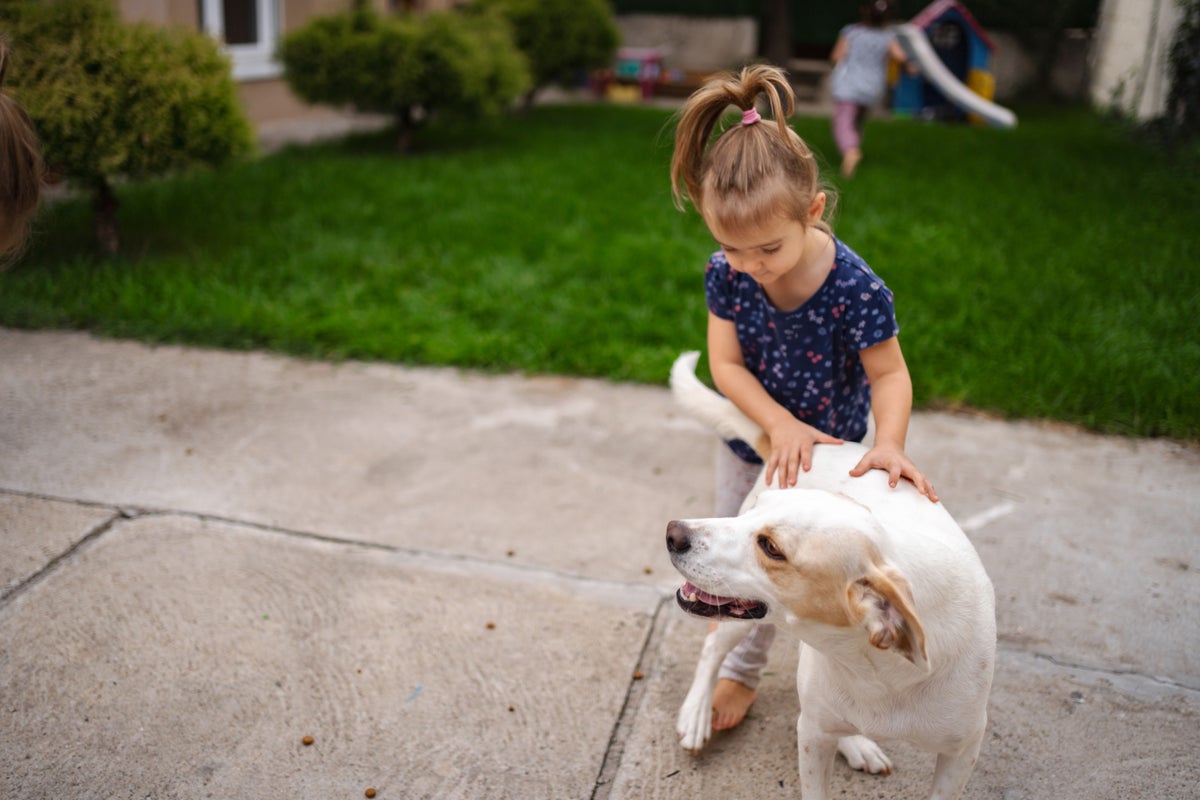The childhood experience that may lower your risk of asthma and eczema

As the number of people with allergies grows worldwide, scientists are trying to work out precisely how and why these conditions – such as asthma and eczema – develop.
One long-standing idea is the “hygiene hypothesis”. This suggests our modern indoor lifestyles are to blame, as they limit our early exposure to germs and allergens which help train the immune system.
But growing evidence suggests having a pet may counter this effect. As any pet owner knows, our furry friends bring a lot of mess, germs and fur into our homes – along with the cuddles.
So, does spending time with animals lower children’s risk of allergies? Here’s what we know.
How allergies develop
During early childhood, our immune systems learn what to attack and what to ignore to stop us from getting sick.
Evidence suggests early exposure – to family members, food, germs, dust, dirt, pollen and pet dander (skin flakes) – shapes this immune response.
Allergic conditions develop when the immune system overreacts to harmless substances, such as dust, pollen or certain foods. These reactions can affect the skin, airways and gut.

However, we still don’t fully understand why some people develop allergies while others don’t.
Scientists have identified genes linked to allergic conditions. But most have subtle effects on the immune system and act as “risk factors” – they increase the chance of disease but don’t cause it outright.
Recent research suggests exposure to bacteria in our environment could be another major factor.
From birth, our bodies are colonised by bacteria, especially in the gut. This community of microorganisms is known as the microbiome.
Ongoing “crosstalk” between the microbiome and immune system is crucial for healthy immune function. When this balance is disturbed, it can contribute to inflammation and disease.
The effect of our early environment
In the last few decades, studies of children raised on farms gave us some of the first clues that early environments can affect allergy risk.
Compared to children raised in cities, children on farms are less likely to have allergic conditions such as eczema and asthma. This is especially true of those in close contact with animals.
Notably, farm-raised children tend to develop a more diverse microbiome than children raised in urban environments. This may help make their immune system more tolerant to foreign substances (such as bacteria and dirt) and less likely to develop allergies.
However, across the world children are increasingly living in urban areas.
This means a pet may be the closest contact they have with animals. So, does this still lower their risk of developing allergies?
What the studies show in eczema
Some studies indicate children with pets may be less likely to have allergies.
However, this evidence hasn’t always been easy to interpret.
It can be difficult to tell whether lower allergy rates are due to the pets themselves or other factors, such as location, lifestyle or a family history of allergies.

A review of results from 23 studies found children exposed to dogs early in life were significantly less likely to develop eczema.
Another 2025 study analysed genetic data from more than 270,000 people. It found a gene linked to eczema only increased the risk of eczema in children who hadn’t been exposed to dogs.
This suggests early dog exposure may help protect children who are genetically more likely to develop eczema.
What about asthma?
When it comes to asthma, the story gets trickier.
One 2001 study followed more than 1,000 children in the United States from birth to age 13. It found those living with dogs indoors were less likely to develop frequent wheezing – a common asthma symptom – but only if they didn’t have a family history of asthma.
A Korean study from 2021 found those who had dogs during childhood were less likely to develop allergies. But they had a slightly higher risk of non-allergic wheeze — a type of breathing difficulty usually caused by airway irritation or infections (not allergens).
This suggests while growing up with a dog may protect against allergic conditions, such as asthma, it may increase the chance of certain non-allergic respiratory symptoms.
What about cats?
It’s challenging to tease apart the specific effects of cats versus dogs since many early studies grouped all furry pets together.
But in studies that have looked at them separately, living with cats didn’t seem to reduce allergy risk.
One potential reason is cats and dogs carry very different microbes, which may influence how they shape the household environment.
So, should you get a pet?
If you’re already thinking about getting a dog, there’s decent evidence early exposure could reduce your child’s risk of eczema, and possibly other allergic conditions too.

It’s not a guarantee, but a potential bonus – alongside companionship, joy and never having to worry about what to do with leftovers.
And if a dog’s not on the cards, don’t worry. Spending time outdoors, encouraging messy play, and avoiding overuse of disinfectants can all help build a more resilient immune response.
Samantha Chan is an Immunology and Allergy Lead at the Snow Centre for Immune Health, WEHI (Walter and Eliza Hall Institute of Medical Research).
Jo Douglass is a Professor of Medicine at the University of Melbourne and Director of Research at Royal Melbourne Hospital.
This article is republished from The Conversation under a Creative Commons license. Read the original article.
[title_words_as_hashtags




